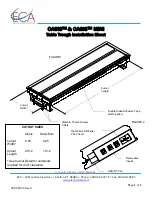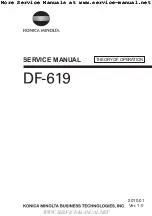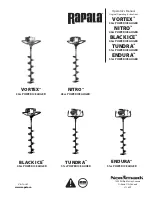
GRF-1300 User Manual and Teaching Materials
3.
Set up the GSP-730 as follows:
•
Center frequency:880MHz
•
Span: 10MHz
•
Reference level: -10dBm
•
RBW: Auto
Step1
F1
8
8
Step2
Span
F1
1
0
Step3
Amplitude
F1
1
Step4
BW
F1
4.
Adjust the FM frequency deviation to 1MHz (2MHz in total)
with the amplitude knob.
2MHz
5.
Measure the ACPR and OCBW after these settings are
performed.
ACPR
measurement
Step1
Meas
82
Summary of Contents for GRF-1300
Page 15: ...Introduction to the GRF 1300 Figure A 10 Operation interface for HyperTerminal 13 ...
Page 19: ...Overview of the Time and Frequency Domain Time domain Frequency domain 17 ...
Page 20: ...GRF 1300 User Manual and Teaching Materials NOTES 18 ...
Page 21: ...Overview of the Time and Frequency Domain NOTES 19 ...
Page 22: ...GRF 1300 User Manual and Teaching Materials NOTES 20 ...
Page 23: ...Overview of the Time and Frequency Domain NOTES 21 ...
Page 24: ...GRF 1300 User Manual and Teaching Materials 22 NOTES ...
Page 30: ...GRF 1300 User Manual and Teaching Materials NOTES 28 ...
Page 31: ...An Introduction to Spectrum Analyzers NOTES 29 ...
Page 56: ...GRF 1300 User Manual and Teaching Materials NOTES 54 ...
Page 57: ...RF Communication and Signals Experiments NOTES 55 ...
Page 58: ...GRF 1300 User Manual and Teaching Materials NOTES 56 ...
Page 59: ...RF Communication and Signals Experiments NOTES 57 ...
Page 95: ...RF Communication and Signals Experiments 10MHz frequency deviation test results 93 ...
Page 101: ...Test for Learning Outcomes NOTES 99 ...
Page 102: ...GRF 1300 User Manual and Teaching Materials NOTES 100 ...
Page 103: ...Test for Learning Outcomes NOTES 101 ...
Page 104: ...GRF 1300 User Manual and Teaching Materials 102 NOTES ...
Page 109: ...Appendix Modulation Index and Sideband Amplitude Comparison Table 107 ...
















































